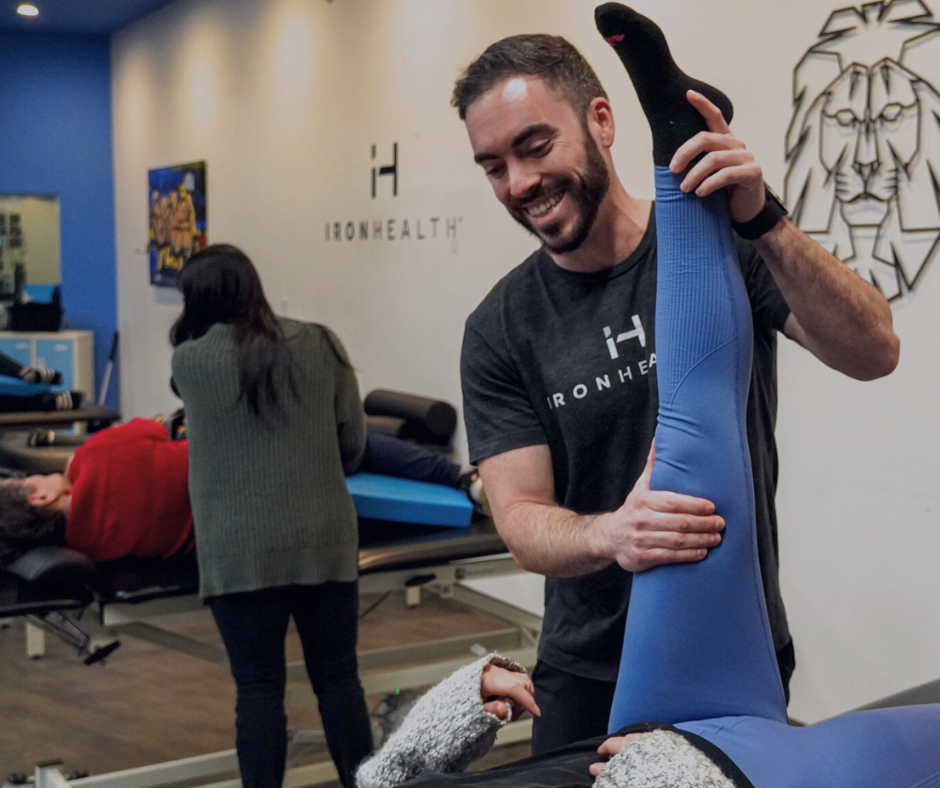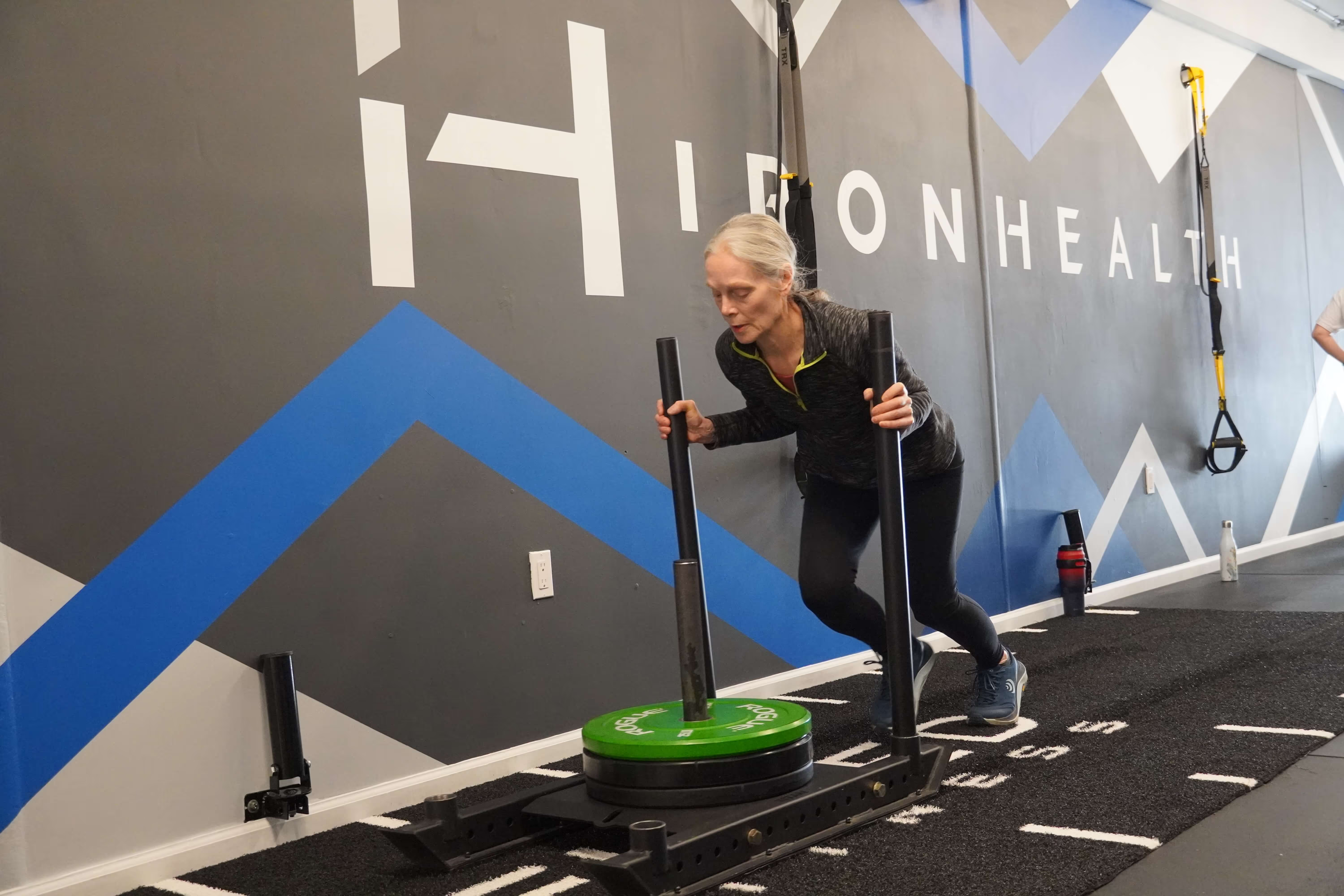Physical Therapy Clinic Serving Westchester & Fairfield Counties
Get back to training, competing, and moving without limits
Iron Health combines expert physical therapy with performance-focused training to help you recover faster and build the strength to stay active for the long haul.
Ways we help you move better and feel stronger
Whether you're recovering from injury or building long-term performance, we provide the care and coaching you need.
Orthopedic Physical Therapy
One-on-one movement-based rehab for joint pain and injury recovery.
Sports Physical Therapy
Performance-focused rehab for athletes recovering from injury.
Post-Operative Rehab
Structured recovery plans after surgery to rebuild strength and function.
Small Group Training
Structured strength and conditioning in a supportive small group setting.
Personal Training
One-on-one coaching to build strength and reach your fitness goals.
Personalized care that fits your goals
Boutique Experience • Customized Results • Holistic Approach
Built for active adults and athletes
We understand the demands of training and competition. Your rehab reflects that, not a generic protocol.
No rushing through appointments
You get the time and attention you need. Sessions are focused on you, your progress, and making sure every movement counts toward your goals.

Rehab meets performance training
Recovery doesn't stop when pain fades. We help you build the strength and movement patterns to stay healthy long-term.
Strength-focused from day one
We don't just work on pain relief. From your first visit, we're building the resilience and capacity your body needs to handle real training loads.
From evaluation to results in three clear steps
Schedule your evaluation
Call to set up your first visit. We'll assess your movement, pain, and training goals.
Get your personalized plan
Receive a customized plan built specifically for your body and objectives.
Progress and stay strong
Work with your provider regularly, adjust as you improve, and transition to long-term performance training if it fits your goals.
What our clients are saying
Real results from active adults and athletes across Westchester County and Connecticut.















































































FAQs
Common questions about getting started with Iron Health.
we work with most insurance carriers on an out of network basis. We work with most commerical insurance plans on an out of network basis please call the office to see what your plan covers. We also accept HSA and FSA payments.
Initial evaluations typically last 40 minutes. Follow-ups are usually 40 minute one-on-one sessions, depending on your plan and needs.
In New York and Connecticut, you do not need a referral to see a physical therapist. You can schedule directly with us and begin your evaluation.
Absolutely. Many clients transition from one-on-one rehab into our small group training sessions as they progress. We'll help you determine the right timing based on your recovery.
Wear comfortable athletic clothing and bring any relevant medical records, imaging results, or referrals if you have them. If you're using insurance benefits, bring your insurance card as well.
Still have questions?
Lorem ipsum dolor sit amet, consectetur adipiscing elit.
Ready to move better and feel stronger?
Book your evaluation and start building a personalized plan that works for your body and your goals.

